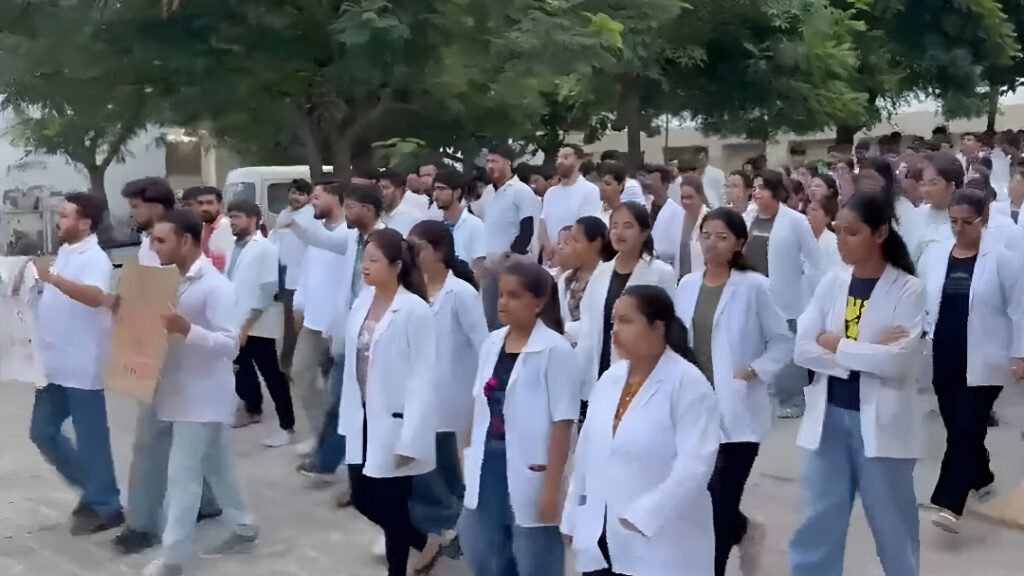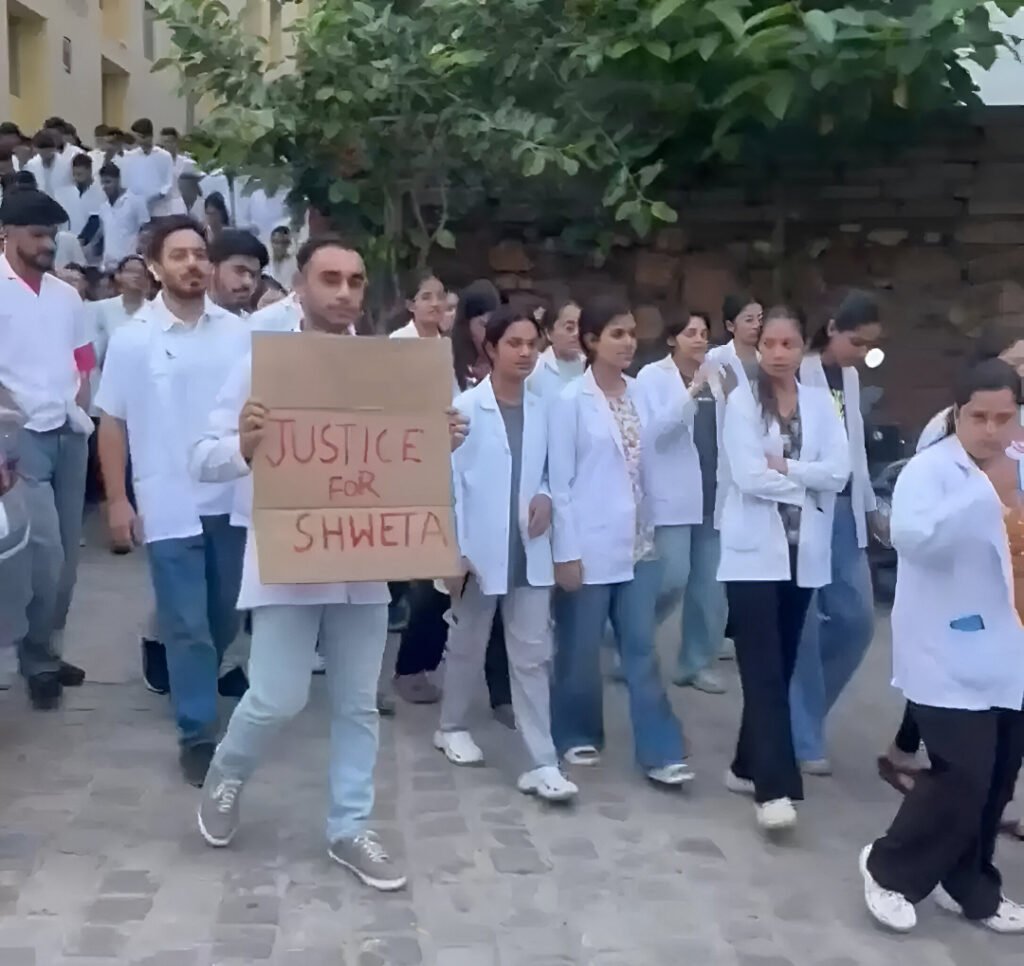
A pall of shock and anger has descended on Udaipur after a final-year MBBS student at Pacific Dental College allegedly died by suicide in her hostel room—an incident now at the heart of severe unrest, mass protests, and renewed questions about mental harassment and institutional responsibility in Indian higher education. The tragedy has put a spotlight on startling claims of student mistreatment and irregularities within the Udaipur college environment.
Tragedy Strikes Pacific Dental College: The Facts
Late Thursday night, Shweta Singh, a 25-year-old final-year student pursuing a Bachelor of Dental Surgery (BDS) at Pacific Dental College in Udaipur, was found hanging in her college hostel room around 11pm by her roommate. Despite desperate attempts to save her, she was declared dead at the hospital. Hailing from Jammu and Kashmir and the only daughter of a police constable, Shweta’s death sent shockwaves across campus and social media.
Suicide Note Alleging “Mental Harassment”
What distinguished this tragedy from countless others was the recovery of a handwritten note from the scene. In her final words, Shweta accused two college staff members—identified as “Naini ma’am and Bhagwat sir”—of relentless mental harassment. She cited a string of grievances: manipulation and irregularity of exam schedules, arbitrary failing of students, constant monetary demands, and severe pressure, especially on financially less-privileged students. The note also claimed those who couldn’t pay were routinely singled out, worsened by constant stress over attendance and examination procedures.
Udaipur Protests: Students Demand Justice

The explosive contents of the note ignited immediate fury among students, who staged a powerful protest at Pacific Dental College. Videos from the scene show outraged students blocking entrances, raising slogans, and refusing to disperse despite repeated intervention by local police. The protestors, many of whom described similar systematic harassment and malpractices, called for immediate action against the administration and the staff members named in the note.
The campus was described as being “on boil,” with many students claiming that Shweta’s batch had especially suffered due to long-delayed exams and arbitrary academic decisions. Peer accounts stated that repeat exams were supposed to occur every six months, but, in reality, delays stretched to 18 months, keeping Shweta stuck in limbo and unable to start her internship. These compounded frustrations culminated in the current crisis.
Administration Responds, Staff Expelled
Amid mounting pressure and national headlines, the Pacific Dental College administration convened emergency meetings. Rahul Agrawal, chairman of the Pacific Group, publicly acknowledged student grievances and reprimanded the college principal for failing to resolve prior complaints. The two faculty members named in Shweta’s note have since been expelled from the college as a first move to address the crisis, though protesters insist more accountability and systemic changes are urgently needed.
College management also pledged a review of academic procedures and vowed to resolve the students’ issues within two to three months. Local police, meanwhile, have begun a probe, awaiting the arrival of Shweta’s family before proceeding with further legal steps and an autopsy.
National Outcry Fuels the Debate

Shweta’s death at the Pacific Dental College—now widely referenced as the “Udaipur college student suicide” and “Pacific Dental College suicide”—has brought renewed scrutiny to how mental health and harassment complaints are handled in India’s academic institutions. Social media is awash with demands for better student protection, stringent action against errant faculty, and the creation of more robust, empathetic grievance redressal mechanisms.
Conclusion: Addressing Systematic Problems
The Udaipur student suicide case brings to the forefront the educational institution’s internal ecosystem, undeniably revealing how an amalgamation of stress, torment, and administrative silence can prove fatal. Undoubtedly, the immediate reforms of the institution’s pledges alongside the administrative urgency to curb espousal and the promises of reformation are a good start. However, the activism of the students alongside the wider public is still geared towards unearthing underlying sociopolitical issues and implementing a thorough system of safeguards to ensure that no family or student has to endure such life-altering tragedy ever again.











